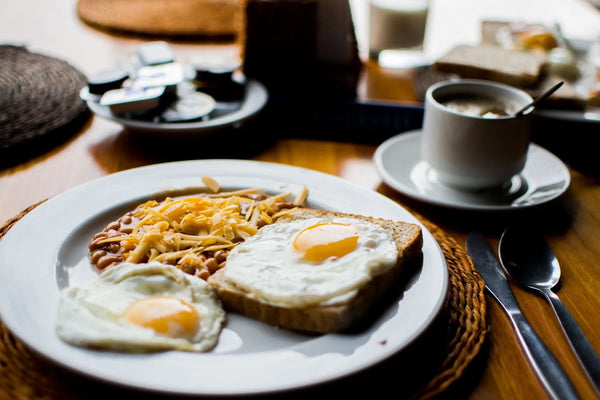
A loss of appetite occurs when you have a low desire to eat. Different factors can cause poor appetite, including mental and physical illness. If your lack of appetite lasts for more than a couple of days, it can cause weight loss or malnutrition. Not having an appetite can be frustrating for anyone, especially people who are underweight and trying to gain weight or build mass.
This article lists 6 easy ways to increase your appetite
6. Eat Small Meals More Frequently
Eating three full meals might seem like a challenging task when you don’t have a healthy appetite. A more motivating way to eat is to divide your three main meals into five or six smaller meals. As your appetite improves, you can start increasing the portions of these meals or adding more ingredients to consume more calories throughout the day. For example, if you’re eating a tuna sandwich, incorporate some veggies and cheese to add more calories and nutrients.
5. Eat Nutrient-Rich Foods
People with poor appetites tend to eat empty calories like candy, chips, ice cream, and baked goods to gain weight. Even though these kinds of foods might seem more appetizing and contain high amounts of calories, they’re a bad idea since they provide very few nutrients. Instead, concentrate on foods that provide you with calories and a wide array of nutrients like protein and healthy fats. For example, instead of ice cream for dessert, you can eat 1 cup of plain Greek yogurt. Add some berries and cinnamon for sweetness. Similarly, if you feel like eating pizza, you can make your own and add extra veggies and some protein for extra nutrients.

4. Don't Skip Breakfast
Consuming breakfast on a daily basis is important when you want to increase your appetite and gain weight. A review study showed that skipping breakfast can lead you to eat less throughout the day, which is the opposite of what you want. Furthermore, breakfast helps increase the body’s thermogenesis effect, making you burn more calories throughout the day. This can increase your appetite. If you’re trying to eat more, having breakfast every day is as important as having regular meals throughout the day.
3. Incorporate Healthy Snaks
Eating big meals can be intimidating, whereas small and easy-to-eat snacks can be more convenient and take less effort to increase your food intake. Snacks can also be helpful while you are on the go. However, snacks are not meant to replace your big meals, but rather to complement them. So avoid eating snacks close to mealtime, because it could affect your appetite.
Here are some examples of healthy snacks:
- Fruits like bananas, apples and oranges
- Protein bars or granola bars
- Greek yogurt or cottage cheese and fruit
- Nut butter and crackers
- Salty snacks like popcorn or trail mix
2. Exercise More
During exercise, your body burns calories to sustain your energy levels. Physical activity can increase your appetite to replenish the calories burned. In fact, one study put 12 people through 16 days of continuous training. After this period, they burned 835 extra calories a day, on average. Additionally, they increased their food intake and were able to replenish 30% of the calories they had burned during exercise. However, your appetite is more likely to improve after several days of exercise, not after just one day.
Also, physical activity can influence several processes in your body that have been shown to stimulate hunger. These include increased metabolic rate and muscle mass, as well as changes in hormone production.
1. Balance7
Taking the proper supplements to encourage your body's natural instinct to eat. This is done with health supplements in mind. Taking Balance7 1oz. 3 times every day will adjust the body's natural time clock to eat. Balance7 gives the body its proper neutrality with its Ph11+ formula. It rids the body of inflammation and stimulates the brain to consume healthy foods.
The Bottom Line
Many factors can affect your appetite, including physical conditions, mental conditions, medications, and vitamin or mineral deficiencies. However, small changes can make a big difference. You could try increasing your appetite by inviting people over for meals and cooking with new recipes using spices, herbs, and high-calorie ingredients to make food more appealing and nutritious.
Try limiting your beverages before and during meals, and moderate your intake of high-fiber foods, since they can sap your appetite. If you find large meals daunting, motivate yourself to eat by having frequent, small meals instead.
Another trick is to eat your largest meal when you are the hungriest. The rest of the time, you can incorporate smoothies and high-calorie drinks that can be easier to consume.
If you have a hard time eating, it’s always a good idea to check with your doctor, who can advise you about boosting your hunger and gaining some healthy pounds.

